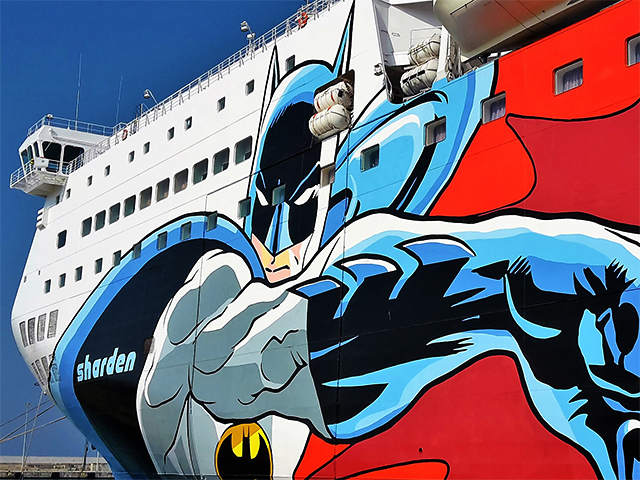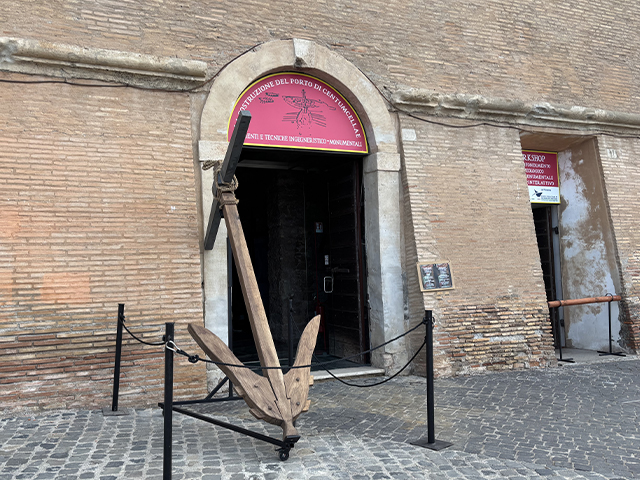The Navalia Project lands at the Ministry of Cultural Heritage
When an idea is good, it finds the way! We tell you about the Navalia Project and how it has managed to land at the table of Minister Dario FranceschiniAfter years of hard work, difficulties, passion, serious researches and the reconstrucion works regarding maritime archaeology, the Archeological Center for Naval Studies with their Laboratory (Casn-Lans), promoter of the Navalia Project, arrives at the Ministry of Cultural Heritage. This news make us very happy, since we have always followed the events closely and supported the project from the beginning. And luckily now it's not only us.
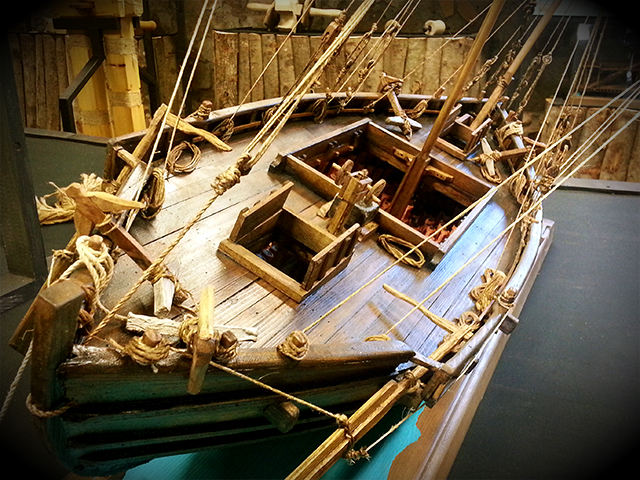
Ship reconstruction. Detail of the Navalia Exhibition at the Historic Port of Civitavecchia
Many of you will remember the amazing Navalia Exhibition at the Old Port. The event involved and drew many visitors like scholars, researchers, citizens and cruisers, as well as many schools.
"A reconstruction unique in the world" according to Captain Mario Palmieri, Project Director and Creator.
And so last 15 December 2016 the Minister of Cultural Heritage Dario Franceschini invited Commander Mario Palmieri, Director of the Project Navalia. The meeting was attended by the General Director of the Ministry, the private secretary of the Minister and an important archaeologist of MIBAC.
We have taken this opportunity to talk with Mario Palmieri and ask him how was the meeting.
Then Mario explain how and why you were called to the Ministry
By chance, during the presentation of a book, I met the Minister. Quickly I explained our work. He asked us which University we were doing these researches and experimentations for and he confessed that he didn't know that existed in Italy such a project. He gave me his email and we then sent the project directly to Minister Franceschini, logically with not so many expectations. 15 days after we were summoned to the Ministry of Cultural Heritage.
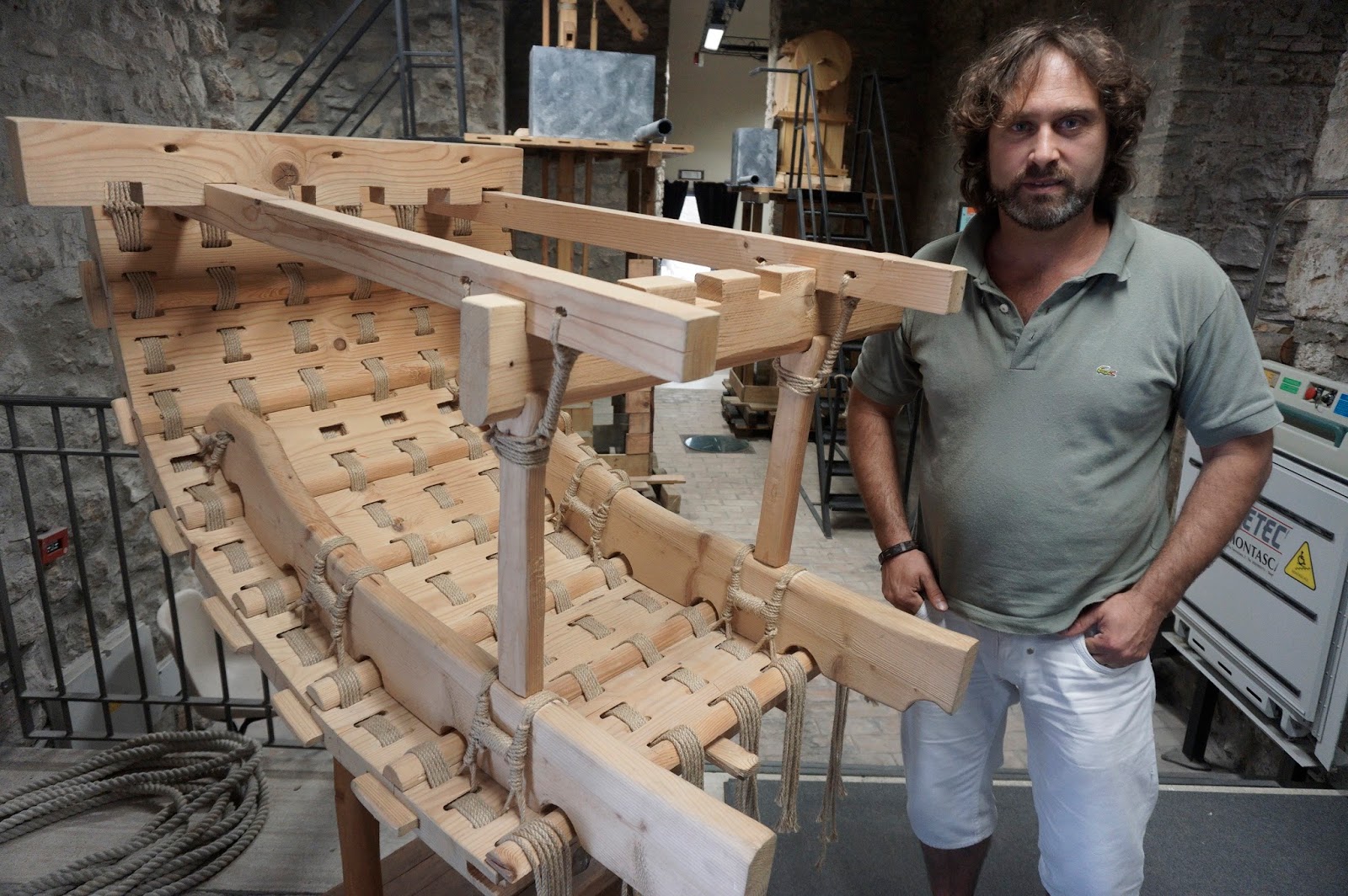
Commander Mario Palmieri at the Rock of Civitavecchia during the Navalia Exhibition
How was the meeting?
Great! We explained to the Minister the cornerstones of the Navalia Project, basically the promotion and detailed study of the great geotactic and logistic operative influence that the Roman Fleet had on the creation of the Empire. Also, ancient naval constructions, the experimentation of rowing and sailing propulsion of the ancient triremi, quadriremi and quinqueremi and commercial ships, the study of the hydraulic on board, the development of tanker vessels and of mechanical apparatuses of military nature as well as the reconstruction of ancient lifting machines. Regardless of how things will evolve, I would like to thank Minister Franceschini and his staff. The attention he has given a project “that comes from nothing”, that is, not through a third party and the caliber of the people who attended the meeting he organised at the Ministry, shows a serious, dedicated, intuitive and professional personality. In fact, everything began thanks to his initiative, assessment and judgement.
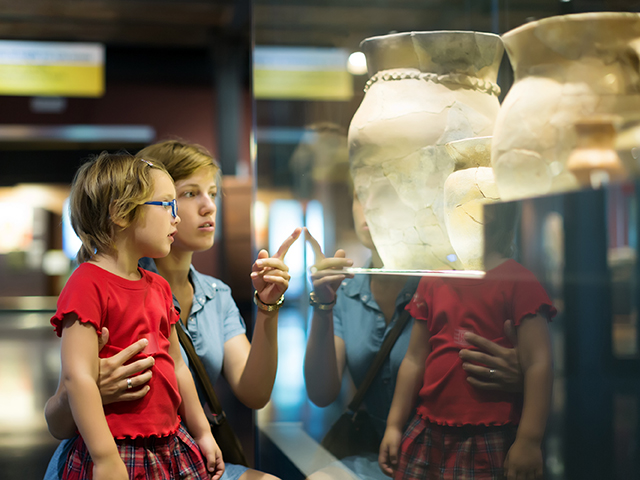
Where will the Museum of the Sea and Ancient Navigation be?
Great, and now?
The General Director provided us with 3 development possibilities for our idea. Now we need to draft a project, which we are preparing these days together with the chair of Underwater Archeology of Roma Tre University (responsible Professor Barbara Davidde).
The ball will be again back in the Ministry to evaluate the case.
May I ask which are these 3 possibilities?
It's too early to talk about it now. Unfortunately, none of them implies Civitavecchia.
Talking of Civitavecchia. Some months ago appeared some news that aroused great interest, and they were refuted by many local newspapers, about the possibility to establish the Navalia Project as a museum in Civitavecchia. They said the museum would be located in an area in the Fort Michelangelo…
We would like to continue working with Civitavecchia. In fact we are still waiting for a response from the City Council and we have a good relationship with both the Coastguard and the Port Authority, who have always believed in our scientific work. Next year will be the year of Trajan, (1,900 years from his death editor's note) who was born in Spain and was one of the most important Roman emperors and it would really be a pity if Civitavecchia did not take full advantage of this historic event that directly involves Spain. I am thinking, especially, of the many opportunities for the local microeconomics (hotels, restaurants, shops) which might arise from a museum project as Navalia. A project that could draw many schools with our educational workshops and an organised local cultural proposal. Among other things here at the port every week are calling ferries from Barcelona. That is enough to create a simple collaboration with schools and tourist operators of this beautiful Spanish city to ensure that institutions and people interested will stay some days in Civitavecchia and in the very interesting surrounding area, like Tarquinia, Santa Severa, Cerveteri which are even more ancient than Rome.
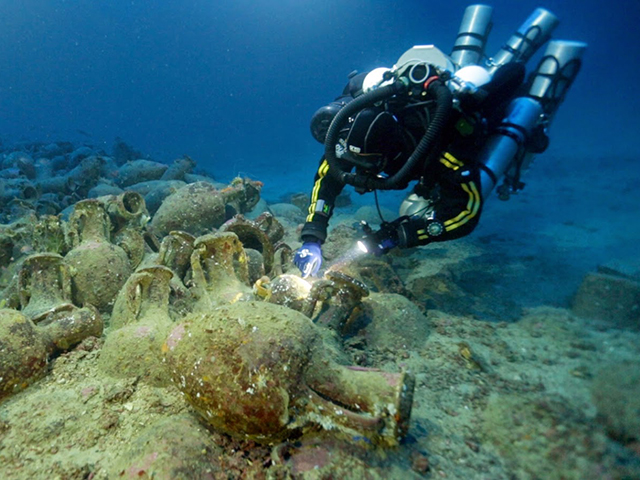
Researchers, experts in navigation and traditional ship's carpenters. They are also part of the Casn-Lans
What's the Casn - Lans?
The Casn is a self-managing center composed of researchers, experts to navigation and traditional ship's carpenters able to carry out a completely innovative service. They have shown interest in and have been able to study on the spot the wrecks of boats and ships, experimentally reconstructing construction and craft technical systems and solutions. The works of the CASN have, over the years, been distributed in museums dedicated to the sea throughout Italy and in exhibitions of national and international prestige, as well as appeared in scientific television broadcasts, like the popular broadcast of famous journalists Piero and Alberto Angela.
We thank Commander Palmieri for this pleasant chat and we conclude hoping that this article may help to raise awareness and will make institutions put before and welcome the excellent work of this expert team - historians, archeologist and scuba-divers - with the aim to help them find the right way to keep working. Maybe in Civitavecchia. Why not?



 PORT MOBILITY CIVITAVECCHIA
PORT MOBILITY CIVITAVECCHIA












